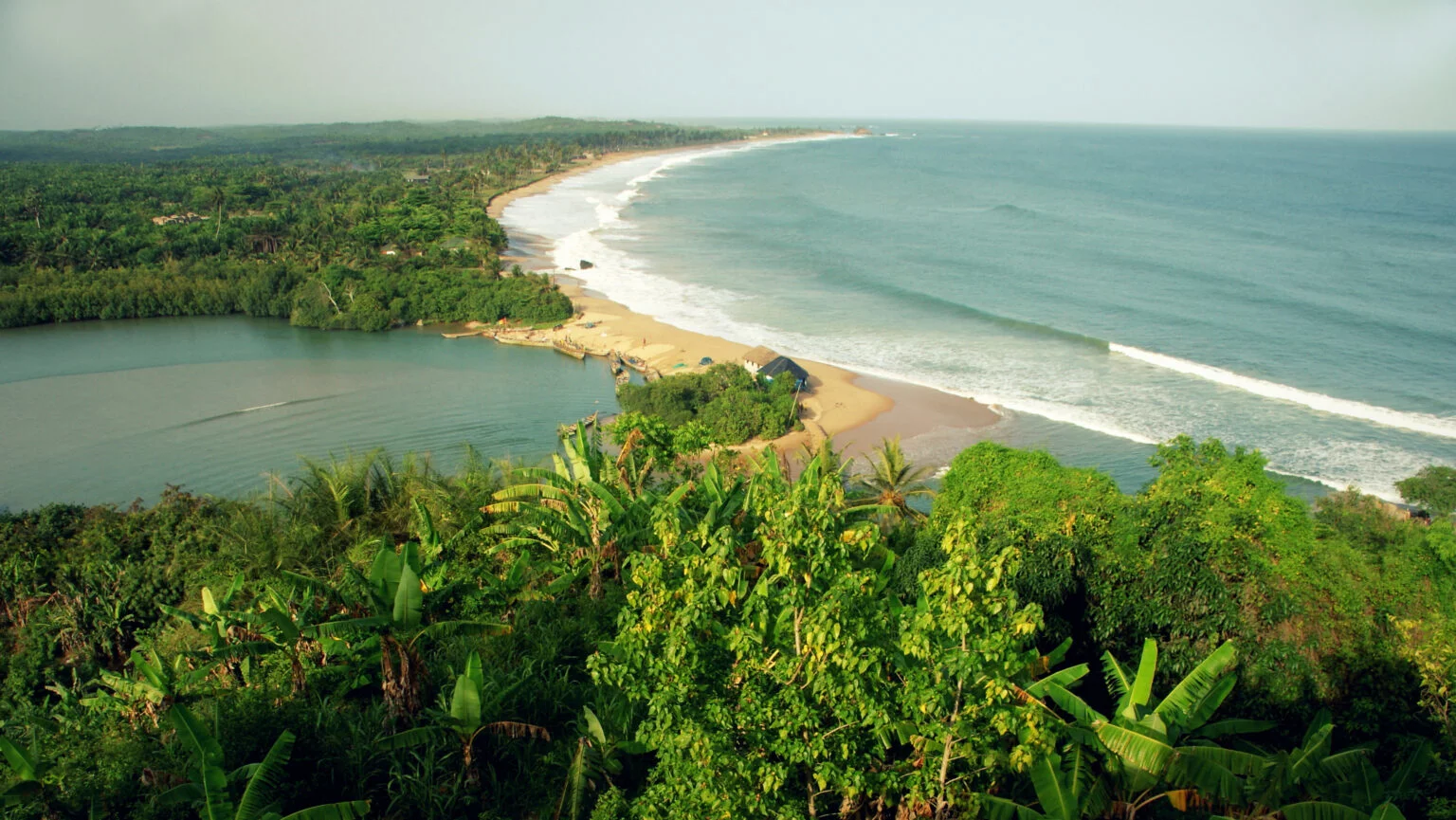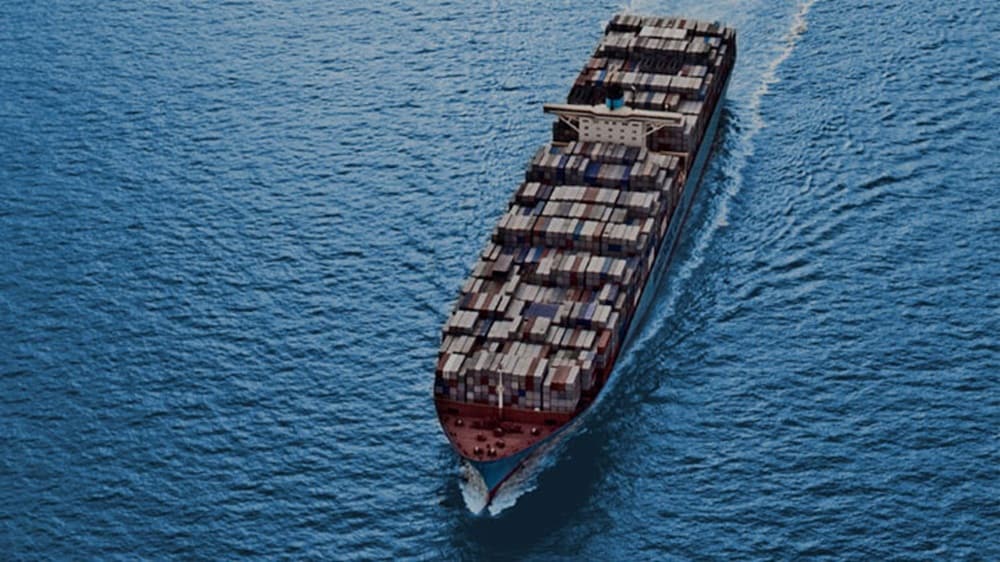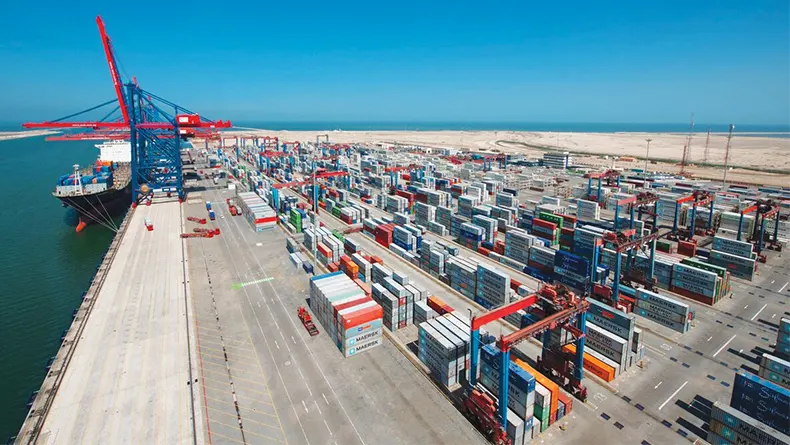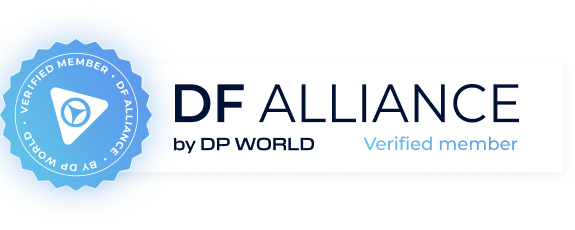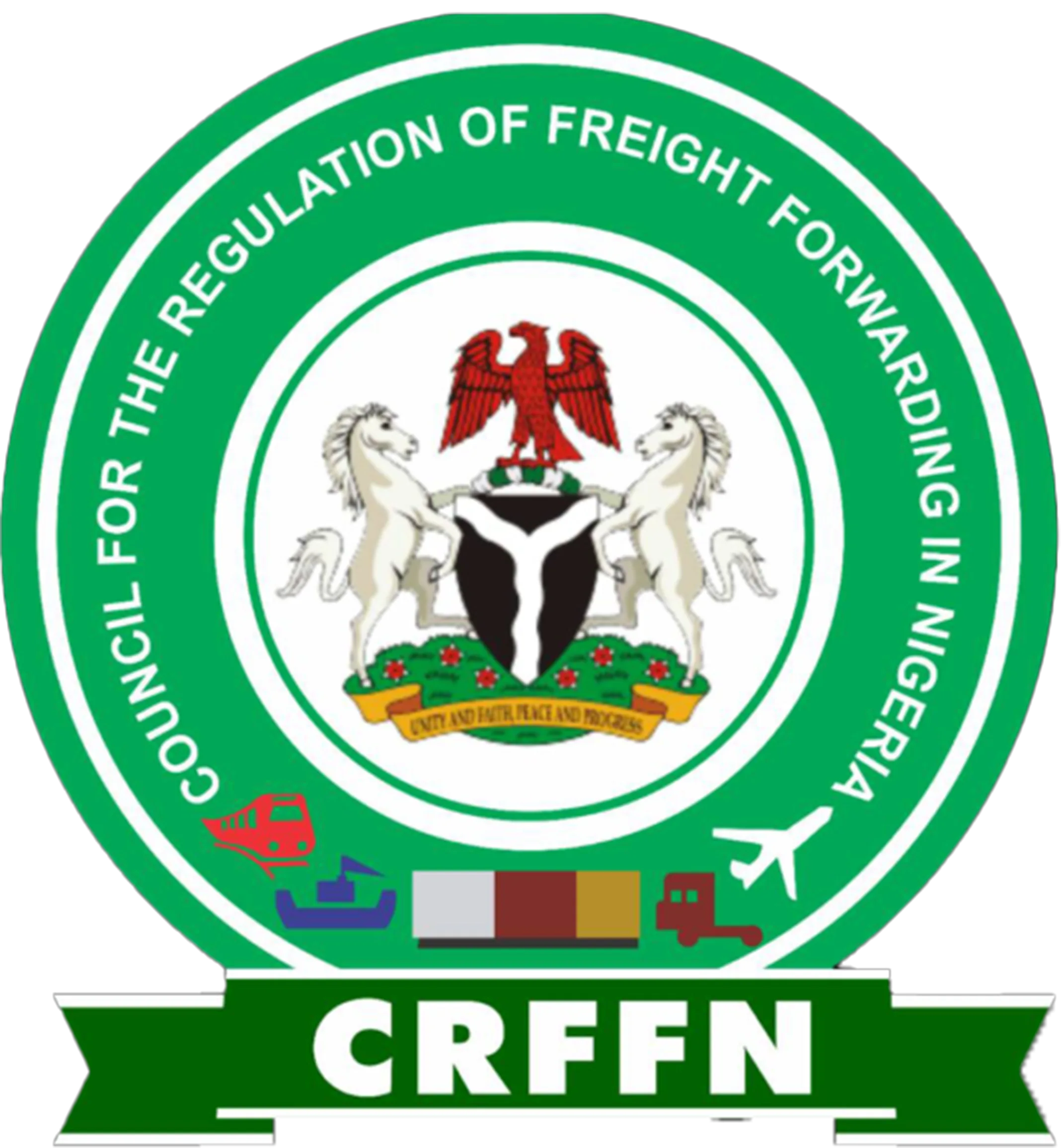Connecting São Tomé & Principe across Africa and beyond
Providing you with expert guidance for navigating São Tomé and Principe’s complex trade landscape.
Nestled in the Gulf of Guinea, São Tomé & Príncipe’s unique island setting presents a captivating trade landscape. Limark’s seasoned expertise in navigating insular logistics ensures your cargo flows seamlessly across the archipelago and beyond.
Leveraging our extensive African network, Limark offers unparalleled logistics services in São Tomé & Principe. Whether you’re exporting the nation’s prized cocoa, coffee, or fish, or importing essential goods, we provide tailored solutions to streamline your supply chain.

Import regulations
Importing goods to São Tomé & Principe requires navigating specific procedures and documentation. Here’s a breakdown of the essential requirements:
Product categories requiring import licenses/permits
Food and agricultural products:
- Imports of meat, dairy products, fish, and other animal products require a sanitary certificate from the Ministry of Agriculture, Fisheries, and Rural Development.
- Phytosanitary certificates are required for plants and plant products to ensure they are free from pests and diseases.
- Import licenses from the Ministry of Commerce and Industry may be required for certain food products, such as rice, sugar, and wheat flour.
Pharmaceuticals and medical devices:
- The Ministry of Health regulates the import of pharmaceuticals and medical devices.
- Marketing Authorization (AMM) from the National Drug Agency is required for all medicines.
- Medical devices must be registered with the Ministry of Health and meet specified standards.
Chemicals and hazardous materials:
- The import of chemicals and hazardous materials is regulated by the Ministry of Public Works, Infrastructure, Natural Resources, and Environment.
- Import permits are required, and detailed safety data sheets (SDS) must be submitted.
- Strict adherence to international transport and handling regulations is essential.
Weapons, ammunition, and explosives:
- The Ministry of National Defense and Internal Order regulates the import of weapons, ammunition, and explosives.
- Strict licensing and registration procedures are in place.
Other regulated products
Other products that may require import licenses or permits include telecommunications equipment, radio transmission devices, and cultural artifacts.
Prohibited and restricted imports
Prohibited
- Narcotic drugs and psychotropic substances
- Pornographic and obscene materials
- Counterfeit and pirated goods
- Hazardous waste (Basel Convention)
- Ozone-depleting substances (Montreal Protocol)
- Counterfeit currency and stamps
- Used tires
Restricted (require special permits)
- Live animals and animal products (require health certificates)
- Plants and plant products (require phytosanitary certificates)
- Alcohol and tobacco products (subject to high excise taxes)
- Firearms and ammunition
- Explosives
- Radioactive materials
Relevant agencies
- Customs Directorate (Direção Geral das Alfândegas)
- Ministry of Finance, Trade, and Blue Economy
- Ministry of Agriculture, Fisheries, and Rural Development
- Ministry of Health
- Ministry of Public Works, Infrastructure, Natural Resources, and Environment
- Ministry of National Defense and Internal Order
Free Time
- Generally, 7 days for general cargo and 14 days for containerized cargo after discharge
- However, free time may vary depending on the shipping line and specific agreements
Demurrage charges
- Applied when the free time is exceeded
- Calculated per container, per day
- Rates vary depending on the shipping line, container size, and time elapsed
Detention charges
- Applied when the container is held beyond the agreed-upon time for return to the shipping line after being picked up from the port
- Separate from demurrage charges
- Rates vary depending on the shipping line and container size
Storage limitations
- Port terminals have limited storage capacity
- Containers not cleared within the allowed time may be moved to an off-dock depot at the importer’s expense
Required Import documentation
Commercial Invoice
- Detailed description of goods (including HS codes)
- Quantity, weight, and unit price of goods
- Total invoice value (in USD or EUR)
- Incoterms (International Commercial Terms)
- Payment terms
- Consignee and consignor details
Packing List
- Detailed list of all items in each package
- Description, quantity, weight, and dimensions of each item
- Package markings and numbers
Bill of Lading/Airway Bill
- Evidence of the contract of carriage between the shipper and carrier
- Details of the shipment, including the consignee, consignor, and port of loading/discharge
- Number and type of packages
- Gross weight and measurement of the cargo
Certificate of Origin
- Declares the origin of the goods
- May be required for preferential tariff treatment under trade agreements (e.g., Economic Community of Central African States – ECCAS)
Import Declaration Form (DIF)
- Submitted through the ASYCUDA World system
- Requires detailed information about the shipment and importer
Import License/Permit (for regulated goods)
- Issued by the relevant government agency
Other certificates:
- Phytosanitary certificate (for plants and plant products)
- Health certificate (for animals and animal products)
- Certificate of analysis (for chemicals and food products)
- CITES permit (for endangered species)
Import licenses and permits
- Identify the Regulating Agency:
- Determine the specific ministry or agency responsible for your goods based on the product category
- Gather Required Documents:
- Proforma invoice or commercial contract
- Technical specifications and data sheets (if applicable)
- Certificates of origin, analysis, quality, etc.
- Business registration documents (for companies)
- Taxpayer identification number (NIF)
- Submit application:
- Complete the import permit application form
- Submit the application along with the required documents and fees to the relevant agency
- Applications are typically submitted in person
- Processing and Approval:
-
- The application will be reviewed and processed by the agency
- Processing times can vary, so it’s important to apply well in advance
- If approved, the import permit will be issued
- Validity and Renewal:
-
- The validity period of import permits varies depending on the product and agency
- Renewal procedures involve submitting a new application with updated documents before the expiry date
- Costs:
-
- Import permit fees vary depending on the product and agency
- Additional costs may include inspection fees and testing fees
Customs clearance procedures
- Pre-Shipment Inspection (PSI):
- Not mandatory, but recommended for high-value shipments
- Conducted by an independent inspection company in the country of origin
- Arrival and Unloading:
- Vessel or aircraft arrives at the port or airport
- Cargo is unloaded and placed in customs control
- Document lodgement and Declaration:
- Importer or their agent submits the required documents (DIF, commercial invoice, packing list, bill of lading, etc.) to customs
- Electronic declaration is submitted through the ASYCUDA World system
- Assessment and Payment:
- Customs verifies the documents and assesses import duties, taxes, and fees.
- Payment is made through a local bank
- Inspection (if required):
- Customs may select shipments for inspection
- Release of Goods:
-
- If the shipment complies with all regulations and requirements, and duties/taxes are paid, customs releases the goods
Port/Terminal operations
Major Seaport
- Port of Neves: The main commercial port, handling containerized and general cargo
Air Cargo hub
- São Tomé International Airport: The main airport for air cargo imports
Cut-off dates
- Vary depending on the shipping line and destination
- Confirm with your shipping agent or freight forwarder well in advance
Documentation requirements at terminals
- Ensure all required documents are submitted electronically through the ASYCUDA World system before the shipment arrives
- Original documents may be required for verification at the terminal
Container pickup/drop-off and storage
- Coordinate with your shipping agent or freight forwarder for container pickup and drop-off procedures.
- Be aware of free time limitations and potential demurrage/detention charges.
Disclaimer: This information is based on the latest available data and may be subject to change. Always consult with relevant authorities and experts for the most up-to-date and accurate information.
Export regulations
Get a detailed guide that provides an in-depth look into every aspect of the export process to ensure your goods are shipped efficiently and in compliance with all legal standards.
Product categories requiring export licenses/permits
Cocoa:
- Export License: All cocoa exports require a license issued by the Cocoa and Coffee Board (Agência Reguladora do Café e Cacau – ARCC). Exporters must be registered with the ARCC and meet specific quality and traceability standards
- Grading and certification: Cocoa beans must be graded and certified by the ARCC to ensure quality and compliance with international standards. Only certified cocoa can be exported
- Minimum export price: The ARCC sets a minimum export price for cocoa to protect farmers and maintain price stability
Coffee:
- Export license: Similar to cocoa, all coffee exports require a license from the ARCC, and exporters must adhere to quality standards set by the Board
- Certification: Coffee beans must be certified by the ARCC to ensure quality and origin
Fish and seafood products:
- Export license: The Ministry of Fisheries and Blue Economy issues export licenses for fish and seafood products. The license application requires detailed information about the species, catch location, and fishing vessel
- Catch Documentation Scheme (CDS): Exporters must comply with the CDS, which tracks the entire chain of custody of fish from catch to export, ensuring traceability and legality
- Sanitary certificates: Health certificates are required for fish and seafood exports to guarantee product safety and compliance with sanitary standards
Wood and wood products:
- Export Permit: The Ministry of Public Works, Infrastructure, Natural Resources, and Environment (MOPIRNE) issues export permits for timber and wood products. Exporters must provide evidence of sustainable forestry practices and the legal origin of the wood
- Verification of Legal Origin (VLO): Wood products must undergo VLO to ensure they are not derived from illegal logging
Prohibited and restricted exports
Prohibited
- Narcotic drugs and psychotropic substances: Strictly prohibited under national and international law
- Pornographic and obscene materials: Not permitted for export
- Counterfeit and pirated goods: Illegal to export due to intellectual property rights violations
- Hazardous waste (Basel Convention): The export of hazardous waste is strictly controlled to protect human health and the environment
- Ozone-depleting substances (Montreal Protocol): Export is prohibited to protect the ozone layer
- Counterfeit currency and stamps: Illegal due to financial and legal implications
- Unprocessed precious stones and metals: To encourage local value addition and processing industries
Restricted
- Endangered species and products (CITES): Requires permits from the Directorate General for Environment (DGA) and adherence to CITES regulations
- Live animals and animal products: Require health certificates from the Directorate of Veterinary Services (DVS) to ensure animal health and prevent the spread of diseases
- Plants and plant products: Require phytosanitary certificates from the Directorate of Agriculture and Rural Development (DARD) to prevent the introduction of pests and diseases into other countries
Required documents:
- Commercial Invoice: Detailed description of goods (including HS codes), quantity, weight, value, Incoterms, payment terms, and complete details of the consignee and consignor
- Packing List: An itemized list of goods in each package, including description, quantity, weight, dimensions, and package markings
- Bill of Lading/Airway Bill: Evidence of the contract of carriage between the shipper and carrier, with details of the shipment, consignee, consignor, and port of loading/discharge
- Certificate of Origin: Issued by the Chamber of Commerce, Industry, Agriculture, and Services (CCIAS), declaring the origin of the goods. It may be required for preferential tariff treatment under trade agreements (e.g., ECCAS)
- Export Declaration (DEX): Electronic declaration submitted through the ASYCUDA World system, providing detailed information about the shipment
- Export License/Permit (if applicable): Issued by the relevant government agency
Export Declaration Process (through ASYCUDA World)
- Register as an exporter on the ASYCUDA World platform
- Prepare and submit the DEX electronically through ASYCUDA World
- Customs verifies the declaration and supporting documents
- If compliant, customs approve the export and issue an export authorization
Required export certificates
- Phytosanitary Certificate (for plants and plant products): Issued by the DARD
- Health Certificate (for live animals and animal products): Issued by the DVS
- Certificate of Analysis (for certain products): Issued by an accredited laboratory to confirm quality and safety standards
- CITES Permit (for endangered species): Issued by the DGA
Major Seaport
Port of Neves: The main commercial port, handling containerized and general cargo. Due to its limited infrastructure, it’s crucial to coordinate logistics in advance to avoid delays.
Air cargo hub
São Tomé International Airport: The main airport for air cargo exports, with limited cargo handling facilities. It’s essential to check with airlines for specific cargo requirements and cut-off times.
Cut-off times and procedures
- Vary depending on the shipping line or airline and destination
- Confirm with your shipping agent or freight forwarder well in advance
- Procedures typically include document submission through ASYCUDA World, customs clearance, security screening, and cargo loading
Container storage and Free Time
- Limited container storage is available at the port
- Free time for storage varies depending on the shipping line and the type of cargo
- Storage fees apply after the free time expires
Returning empty containers
- Coordinate with your shipping line or agent to return empty containers to the designated depot
- Failure to return containers on time may result in detention charges
Duties, taxes, and fees
Export duties: São Tomé and Príncipe generally do not impose export duties on most goods
Other fees
- Customs processing fees
- Document handling charges
- Terminal handling charges
- Storage fees (if applicable)
Disclaimer: This information is based on the latest available data and may be subject to change. Always consult with relevant authorities and experts for the most up-to-date and accurate information.

Expertise You Can Trust
Seamless cross-border shipping to and from São Tomé & Principe
São Tomé & Príncipe’s unique island setting presents exciting trade opportunities, but navigating its logistical landscape requires specialized expertise. Limark is your trusted partner, providing seamless logistic services in São Tomé & Principe to overcome local challenges and unlock growth.
With deep-rooted knowledge of local regulations, customs procedures, and tariffs in the region, we ensure your shipments move smoothly and efficiently. Our proven track record of reliability and robust network deliver tailored, cost-effective solutions that optimize your supply chain.
Get Expert Guidance
Contact our regional experts
Partner with experienced freight forwarders and customs brokers for seamless shipping to and from São Tomé & Principe. Ensure full documentation compliance with the guidance and logistics services of our team.
Sales enquiries
We’re happy to talk to you about your shipment needs anytime. Please get in touch with us.
Ready to ship?
Get your shipment moving faster. Request a quote today for our end-to-end supply chain services.
Other African Countries
